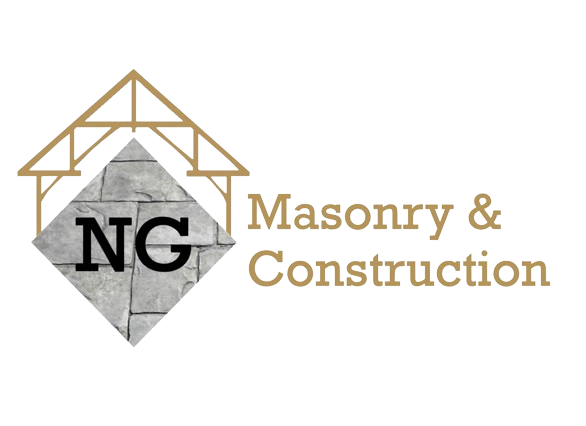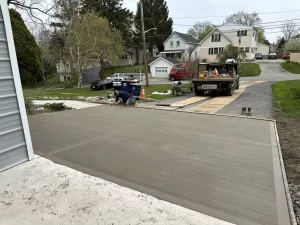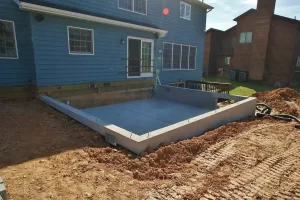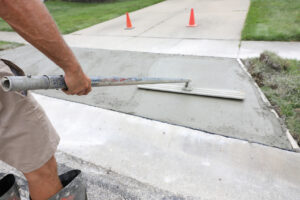Epoxy floors have gained immense popularity for their durability, resistance to stains, and sleek, glossy finish, making them an ideal choice for residential and commercial spaces. However, proper care and regular maintenance are essential to maintain their pristine condition and extend their lifespan. Epoxy floors can become scratched, dull, and damaged over time without the proper cleaning techniques and preventive measures.
This comprehensive guide will walk you through the best practices for maintaining and cleaning epoxy floors. From dealing with everyday dirt and dust to addressing stubborn stains and chemical spills, we will cover everything you need to know to keep your epoxy floors looking their best. Whether managing high-traffic commercial areas or your home’s garage floor, these tips and techniques will help you achieve long-lasting, beautiful epoxy floors.
The Basics of Epoxy Flooring and Regular Cleaning
Epoxy flooring is a popular choice for residential and commercial spaces due to its durability, staining resistance, and sleek appearance. Regular cleaning is essential to maintain the epoxy surface's glossy finish and prevent dirt and abrasive particles buildup. A consistent cleaning schedule ensures that your epoxy floors remain in excellent condition, enhancing their lifespan and aesthetic appeal.
For daily cleaning, a soft-bristle broom or a microfiber dust mop is recommended. These tools help remove loose dirt and dust without scratching the epoxy coating. Avoid using abrasive cleaning tools and harsh chemicals, as they can damage the epoxy finish and reduce lifespan.
Dealing with Dirt and Dust Buildup
If improperly managed, dirt and dust can cause significant wear and tear on your epoxy floors. High-traffic areas, such as entryways, are particularly prone to dirt buildup, leading to scratches and a dull appearance over time. Regular maintenance is crucial to prevent these issues and keep your floors looking pristine.
Incorporating floor mats at entryways can help trap dirt and reduce the debris that reaches your epoxy floors. Additionally, regular dust mopping with a microfiber mop can effectively capture dust and loose particles, preventing them from causing damage to the epoxy surface.
Proper Cleaning Techniques for Stubborn Stains
Stubborn stains can be challenging to remove from epoxy floors, but with the right cleaning techniques, you can maintain their pristine condition. A mild detergent solution and warm water can help lift stains without damaging the epoxy coating. Avoid using abrasive scrubbers or steel wool; they can scratch the surface and compromise the floor's integrity.
For tougher stains, you can create a gentle cleaning solution by mixing a pH-neutral cleaner with a gallon of water. Apply the solution with a soft cloth or non-abrasive pad and gently scrub the stained area. Rinse thoroughly with clean water to remove any residue, and dry the floor with a clean cloth to prevent water spots.
The Role of Water in Epoxy Floor Maintenance
Water is a vital component in the cleaning process for epoxy floors, but it must be used correctly to avoid potential damage. Excess water can seep into the concrete surface beneath the epoxy layer, leading to issues such as mold growth and structural damage. Therefore, using a damp mop rather than a soaking wet one when cleaning your epoxy floors is essential.
Regular mopping with a mild detergent and warm water can help maintain the floor's glossy sheen and remove dirt or spills. Before using the mop, wring it out thoroughly to prevent excess water from pooling on the floor. After mopping, allow the floor to air dry or use a clean cloth to remove any remaining moisture.
Managing Traffic and Wear on Epoxy Floors
Epoxy floors in high-traffic areas are subject to more wear and tear, leading to signs of damage if not properly managed. Protective measures can help reduce the impact of heavy foot traffic and maintain the floor's appearance. Using floor mats and rugs in high-traffic zones can protect the epoxy surface from scratches and dirt buildup.
Regular inspections are essential to identify and address any signs of wear or damage early on. Look for scratches, dull spots, or areas where the epoxy coating may wear thin. Addressing these issues promptly can prevent more extensive damage and extend the lifespan of your epoxy floors.
Addressing Chemical Spills and Stains on Epoxy Floors
Chemical spills can significantly threaten the integrity of your epoxy floors. Harsh substances can cause extensive damage if not promptly and properly addressed. Immediate action is necessary to prevent stains and potential damage from chemical exposure.
In the event of a chemical spill, use an absorbent material to soak up the spill as quickly as possible. Avoid using abrasive cleaning tools, as they can scratch the epoxy surface. Instead, clean the area with a mild detergent and warm water, then rinse thoroughly with clean water. Regularly inspect your epoxy floors for signs of damage from chemical spills and address any issues promptly to maintain their condition.
Choosing the Right Cleaning Solutions and Methods
Selecting the appropriate cleaning solutions and methods is crucial for maintaining the condition of your epoxy floors. Avoid using acidic cleaners or harsh chemicals, as they can damage the epoxy coating and reduce lifespan. Instead, opt for mild, pH-neutral detergents safe for epoxy surfaces.
Here is a list of recommended cleaning solutions and methods:
- Mild Detergent Solution: Mix a pH-neutral cleaner with warm water for a gentle yet effective cleaning solution.
- Microfiber Dust Mop: Daily dusting and removing loose dirt without scratching the surface is ideal.
- Soft-Bristle Broom: Perfect for sweeping up larger debris and dirt without damaging the epoxy coating.
- Non-Abrasive Pad: Use for scrubbing tough stains without causing scratches.
- Warm Water: Use mild detergent for regular mopping to maintain the floor's glossy finish.
These recommended cleaning solutions and methods can help you maintain your epoxy floors in excellent condition while preventing potential damage from harsh chemicals or abrasive tools.
The Benefits of Routine and Deep Cleaning
Routine cleaning is essential for maintaining the longevity and appearance of your epoxy floors. Regular mopping with a mild detergent and warm water can keep your floors free from dirt and grime, preserving their glossy finish. However, occasional deep cleaning is necessary to address tougher stains and buildup that routine cleaning may not remove.
Deep cleaning involves using a more concentrated cleaning solution and scrubbing the floor thoroughly with a soft-bristle brush or non-abrasive pad. Then, to prevent water spots, the floor is rinsed with clean water and dried with a clean cloth. Performing deep cleaning periodically can help maintain the pristine condition of your epoxy floors and extend their lifespan.
Professional Maintenance and Long-Term Care for Epoxy Floors
While DIY maintenance is essential for the day-to-day care of your epoxy floors, professional maintenance services from NG Masonry & Construction can provide additional benefits. Professional epoxy floor installers and maintenance providers have the expertise and tools to address more complex issues and perform comprehensive inspections.
Scheduling regular professional maintenance can help identify and address potential issues before they become significant problems. Professional services from NG Masonry & Construction can include deep cleaning, repairs, and the application of protective coatings to enhance the durability and appearance of your epoxy floors. Investing in professional maintenance can ensure the long-term care and longevity of your epoxy flooring.
Tips for Maintaining Epoxy Floors in Commercial and Residential Settings
Maintaining epoxy floors in commercial and residential settings requires different approaches due to the varying traffic and usage levels. In commercial spaces, high-traffic areas may require more frequent cleaning and protective measures, such as floor mats and regular inspections. A consistent cleaning schedule can help manage dirt buildup and maintain the epoxy surface's condition.
In residential settings, furniture pads can prevent scratches and damage from heavy furniture. Regularly moving furniture and inspecting the floor for signs of wear can help maintain the floor's appearance and longevity. Whether in a commercial or residential environment, following these tips can help you maintain your epoxy floors in excellent condition and extend their lifespan.
By following these guidelines and incorporating regular cleaning and maintenance practices, you can ensure that your epoxy floors remain pristine for years. Proper care and maintenance enhance the appearance of your floors and extend their lifespan, making them a valuable investment for any space.




